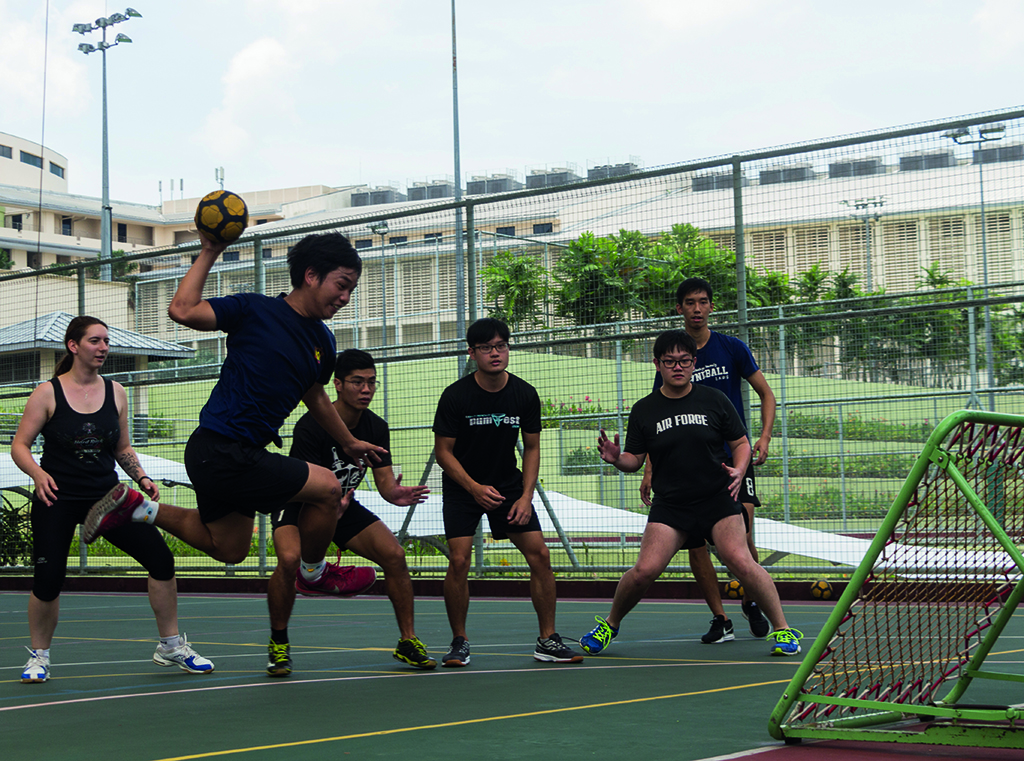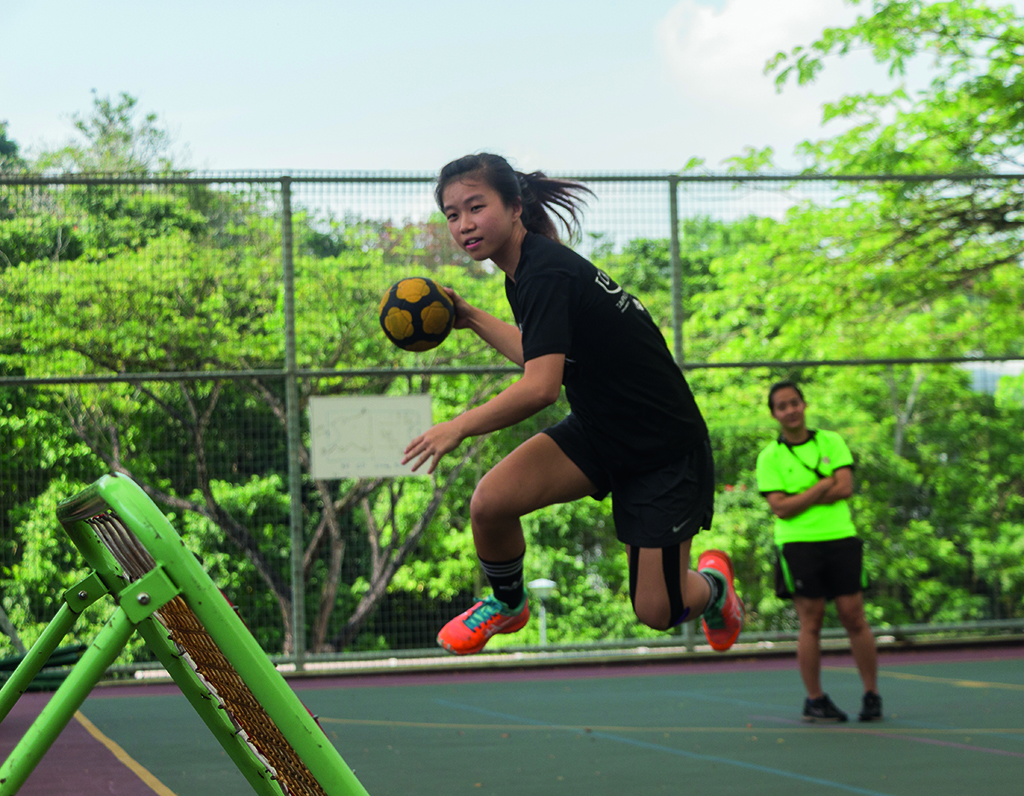Is it fair for athletes to take sports modules?
Updated: 17 Nov 2018
By Samantha Koh
 Chua Song Xing, 24, a third-year student from the School of Civil and Environmental Engineering, attempts to score a point during a game in tchoukball class.
Chua Song Xing, 24, a third-year student from the School of Civil and Environmental Engineering, attempts to score a point during a game in tchoukball class.
PHOTO: JOEL CHAN
Every Thursday morning, a group of 30 students gathers at the basketball court in the National Institute of Education for their tchoukball module. During the practice games, six players stand out as they dodge slower opponents and score several goals, all without breaking a sweat.
These six students are experienced athletes, most of whom signed up to get an “easy A”.
The 20 sports modules offered by the National Institute of Education (NIE) are popular among students, and they are often oversubscribed — the demand for these classes can outstrip capacity by almost three times.
Students are allowed to enrol in these modules regardless of whether they have experience in the sport. But there has been a long-standing debate among the NTU community on how fair this practice is, given that pro ciency in the sport is often the largest grading component.
Second-year Sports Science and Management student Brendon Toh, 23, who took the squash module last year, said students were graded on how successfully they could hit the ball into a speci c boundary. This was the skills test component that made up 30 per cent of their grade.
“Naturally, the experienced players were able to meet the grading requirements more easily compared to those who just learnt the sport,” he said, adding that in the class of 20, there were about four players with prior experience.
Final-year School of Mechanical and Aerospace Engineering (MAE) student Lynn Kiew agreed, and added that athletes should not be allowed to take up a sports module they have been trained in.
The 22-year-old said: “It’s as good as giving them a free A. For language modules, those who have already learnt the language are not allowed to take them, so why can’t it be the same for sports?”
However, athletes do not feel that having prior knowledge and skill in the game will guarantee them an A.
Adalric Ng, 23, a second-year School of Electrical and Electronic Engineering student who took both indoor volleyball and tennis last semester, said: “I got an A for both modules but I only have experience in indoor volleyball. I think that while my experience in sports may have helped, getting an A still relied on me being able to keep my skills consistent in playing the sport.”
Some students feel that the grading criteria should be changed to cater to students of different proficiency levels.
First-year MAE student Lim Jia Wei, 20, suggested giving more weightage to the leadership skills of experienced players, while grading beginner players on their skills in the sport.
Lim is currently taking the tchoukball module and has no experience in the sport.
But second-year School of Physical and Mathematical Sciences student Jason Chua believes athletes should not be treated any differently.
The 23-year-old represents NTU in the Singapore University Games for tchoukball and received an A when he took the tchoukball elective.
He said: “I believe that the system allocates modules fairly... Students should be aware of the playing eld and drop out if they are uncomfortable.”
Evening out the playing field
Tchoukball coach Melissa Lim, 31, acknowledged the difficulty of grading students who come in with various experiences and skills, and said she takes into account students’ individual progress and participation in order to make grading fairer.
About one in six students who attends her class has experience in the sport, she said.
However, other coaches feel that students should know that there will be experienced students in class before taking the module.
A sports module coach, who declined to be named, said: “Students should not take sports modules for the sake of getting a good grade but with the attitude and mindset of learning something new for themselves.”
 Shannon Tan, 22, an experienced tchoukball player, attempts a shot from the side, a move which makes it difficult for defenders to catch the ball.
Shannon Tan, 22, an experienced tchoukball player, attempts a shot from the side, a move which makes it difficult for defenders to catch the ball.
PHOTO: JOEL CHAN



